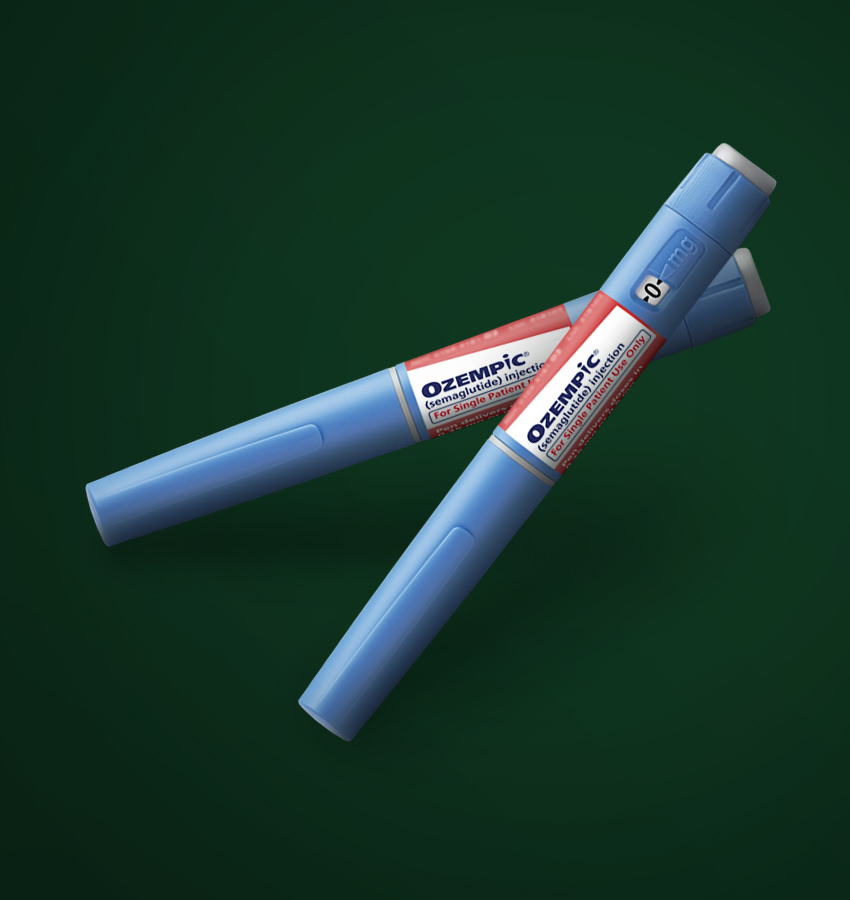Can’t stop stress eating? Some individuals experience stress-related eating and weight gain as a result of elevated cortisol levels. Find out more here.
Trying to lose weight but find yourself reaching for a cookie or a bag of chips after a stressful day? If so, you are not alone. For many people, eating can be a type of comfort and stress relief. In addition to impacting eating habits, chronic stress can actually change levels of the hormone cortisol in your body which can make it difficult to lose weight. In this article, we will explore the connection between cortisol, weight gain, and stress. You will also find valuable information and tips on how to reduce overall stress and regulate stress eating for a healthier lifestyle.
What is Cortisol?
Cortisol is a hormone produced by your adrenal glands which are located on top of your kidneys. It acts as a chemical messenger, sending signals to nearly every organ and tissue in your body by circulating through the bloodstream. Aside from regulating the body’s stress response, cortisol performs many vital functions, including aiding in glucose metabolism, reducing inflammation, regulating blood pressure, affecting the immune system, and assisting the sleep-wake cycle.
Increased levels of cortisol are released in response to stress on the body. This can occur simultaneously to the “flight or fight” response occurring elsewhere in the body. While small and intermittent rises in cortisol levels are normal and helpful, if cortisol is chronically mildly elevated, it can be harmful to your health. There is a rare condition called hypercortisolism (or Cushing syndrome) which is a different medical entity caused by chronic higher levels of cortisol and not the focus of this discussion.
Does Cortisol Cause Weight Gain?
Studies have shown a correlation between increases in cortisol levels and weight gain. When you experience stress, your adrenal glands release cortisol. This triggers a physiological reaction which helps prepare your body for a potentially harmful situation. While cortisol is essential to survival, prolonged elevation due to chronic stress can promote the storage of body fat, particularly in the abdominal area, due to its impact on insulin, the hormone that helps you regulate your blood sugar. Fat in this area, called visceral fat, is associated with a greater risk of cardiovascular and metabolic diseases such as type 2 diabetes, stroke, and heart disease.
Chronic stress can also lead to increased appetite and food intake as well as cause cravings for foods high in fats and sugar. Eating this “comfort food” can activate the brain’s reward system and dampen stress responses and emotions. While this may help you feel better temporarily, it may cause you to put on unwanted weight.
How to Reduce Stress: While there may be multiple aspects of your life that may be contributing to your chronic stress levels, there are several strategies you can try to help reduce overall stress and prevent weight gain.
- Exercise: Engaging in regular physical activity is one of the best ways to reduce stress levels and combat weight gain. Studies have shown that regular exercise can help reduce stress and improve sleep, as well as burn calories, all of which can prevent weight gain. The key is to pick an activity that you enjoy, whether it be a walk outside or a fitness class at your local gym.
- Meditation: Practicing mindfulness techniques, guided meditation, or deep breathing can help reduce stress. These are simple yet effective ways to help calm your body and brain. These techniques promote relaxation and help break the cycle of stress eating and using food for comfort.
- Hydration Thirst: can be easily confused for hunger. Being dehydrated may make you feel hungry, leading you to eat more calories and gain weight. It is important to stay hydrated for overall health and to prevent overeating.
- Mindful Eating: Paying attention to what you are eating at the present moment can help lower stress. When you remove distractions when you are eating, you become more aware of your body’s hunger and fullness cues, allowing you to make healthier choices and avoid overeating. Take the time to enjoy each bite and listen to your body’s signals of satisfaction.
- Consult a Professional: If you have tried these strategies but still struggle to manage stress, consider therapy with a mental health professional. Therapy can help you better understand the sources of your stress and why you are stress eating as well as teach you coping skills to develop healthier stress management and eating habits.
How to Regulate Stress Eating: While there may be multiple aspects of your life that may be contributing to your chronic stress levels, there are several strategies you can try to help reduce overall stress and prevent weight gain.
- Recognize Triggers: Identify your specific triggers for stress eating. Is it work-related stress, relationship issues, financial strains, or emotional distress? By understanding what makes you tick, you can develop alternative coping mechanisms.
- Find Healthy Alternatives: Instead of turning to food for comfort, explore other activities that provide stress relief and relaxation. Engaging in hobbies and fun activities can promote feelings of well-being, which may reduce your overall stress levels and likelihood of stress eating.
- Create a Support System: Surround yourself with a supportive network of friends, family, or a group of people who understand your challenges and can provide encouragement. A support system can be a valuable source of motivation and accountability.
- Practice Self-Compassion: Be kind to yourself and practice self-compassion. The way you talk to yourself matters. Stress eating often leads to feelings of guilt and shame. Instead of beating yourself up, acknowledge that everyone faces challenges and setbacks. Reframe your negative thoughts and treat yourself with kindness and understanding.
How Oak Can Help You Lose Weight Caused by Stress
At Oak Longevity, we understand the challenges of stress-induced weight gain and the impact that stress can have on your overall health. Our team of medical weight loss professionals is dedicated to providing individualized weight loss solutions that address the root causes of your weight gain. Our experts can help you find out what weight loss options might be right for you, including FDA-approved medications such as Ozempic when appropriate. Oak Longevity offers more affordable solutions compared to most medical weight loss programs, while still ensuring quality and FDA approval. We encourage you to schedule a telehealth consult session or send a message to get in touch with the team at Oak Longevity.





